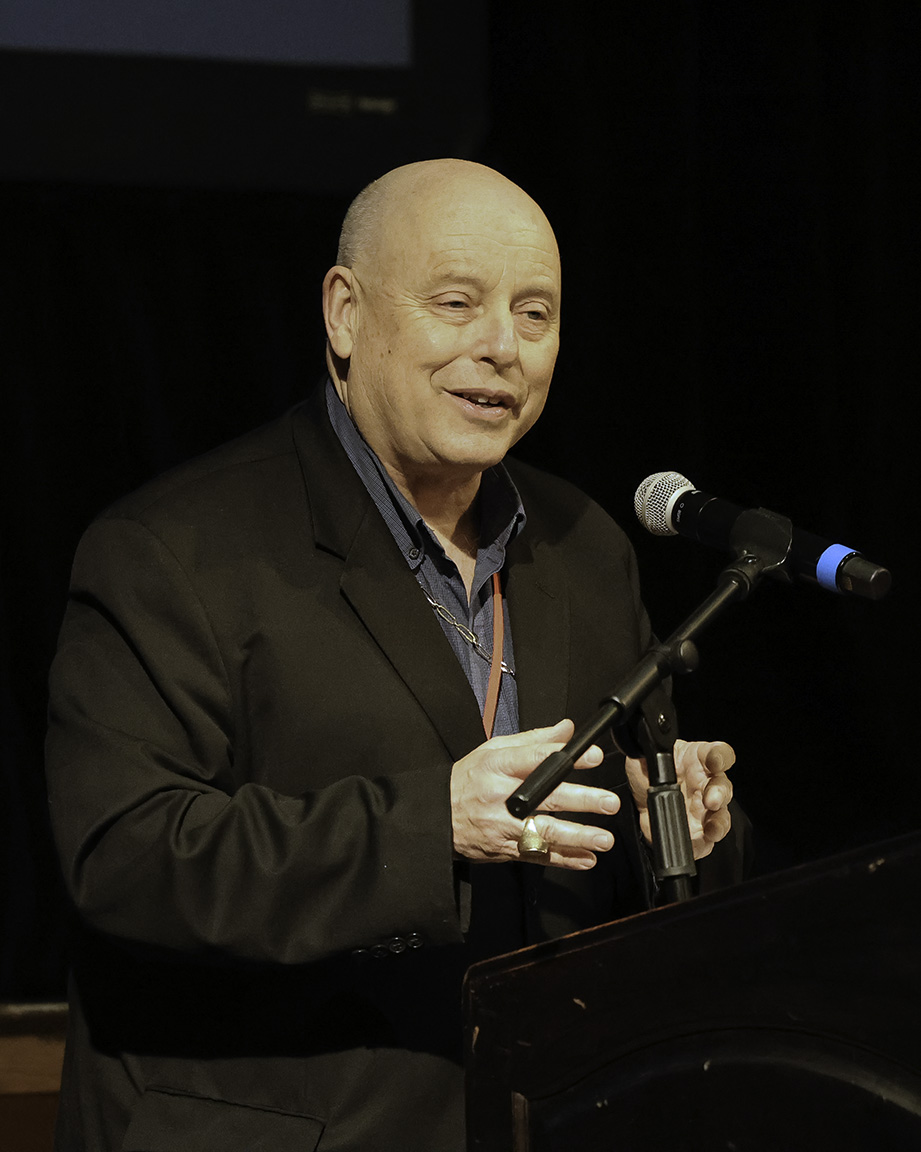
John Harvey Taylor
[The Episcopal News] Deliberate misinformation and lies “continue to put at risk the lives of school children, hospital patients and workers and our Haitian and Haitian American neighbors in Springfield, Ohio,” Bishop John Harvey Taylor said in a September 22 video welcome to participants of a second online session of “Losing Truth: The Critical Cost to Our Lives and Future.”
Taylor referred to recent false statements that Haitian immigrants in Ohio were eating their neighbor’s pets. Those repeated falsehoods led to anti-immigrant violence, including more than 30 bomb threats and forced evacuations of schools and government buildings. On Sept. 24, an Ohio Haitian immigrant group called for the arrest of presidential candidate Donald Trump and his running mate, J.D. Vance, for repeatedly spreading the lies.
“The media marketplace makes it easy to find our way to what we want to hear instead of what we need to hear, and social media algorithms seem to read our very minds, reassuring us and soothing us in our biases and in our predispositions,” Taylor said.
Dot Leach, chair of the Program Group on Ecumenical and Interreligious Affairs of the Diocese of Los Angeles and a former broadcast journalist, moderated the September 22 conversation and a previous September 15 online gathering “to examine the critical costs to our lives and to the future” of misinformation. Both sessions were recorded and will be available soon for viewing on demand.
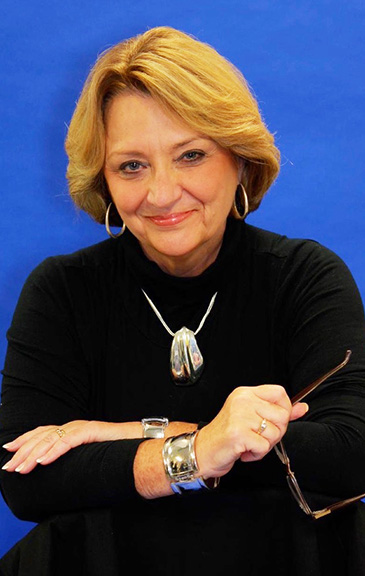
Dot Leach
Panelists agreed that questioning media reports and gathering information from a variety of differing sources is essential to help discern truth, and that it is both a relational and an intellectual exercise.
Disinformation and misinformation undermine trust, “and call to us to help people step back and think about how they evaluate when something’s true or not,” said panelist Lo Sprague, a psychotherapist and president of the Guibord Center – Religion Inside Out, an interfaith spiritual organization begun by her late partner, the Rev. Gwynne Guibord. “It calls on us in the faith community to say to people, ‘where do you find your truth? What does the information do to you? Is the information helpful to you? How do you have a way to work with this information?’”
The Hon. Andrew Guilford, retired federal judge, a panelist and member of St. John’s Chrysostom Church in Rancho Santa Margarita, said he is not convinced hate speech is worse now than before. “We are now more aware of things like implicit bias and the difficulties of eyewitness testimony, how two people can look at something and come away with different opinions,” he said. “Things like the Innocence Project and DNA testing have revealed some pretty shocking conclusions about how we’ve gotten wrong the guilt or innocence of people, to their detriment.”
The need to be discerning about information sources is at the heart of Christianity and many other faiths, said the Very Rev. Paul Daniels, a panelist, dean of the Episcopal Theological School at Los Angeles, and rector of St. Mary in Palms Church in Los Angeles. Christianity is a powerful witness, Daniels said, because, “Christ asks that we remain in a position of questioning, that we remain in a position of irony. That our belief is actually rooted in a sense of self-questioning.”
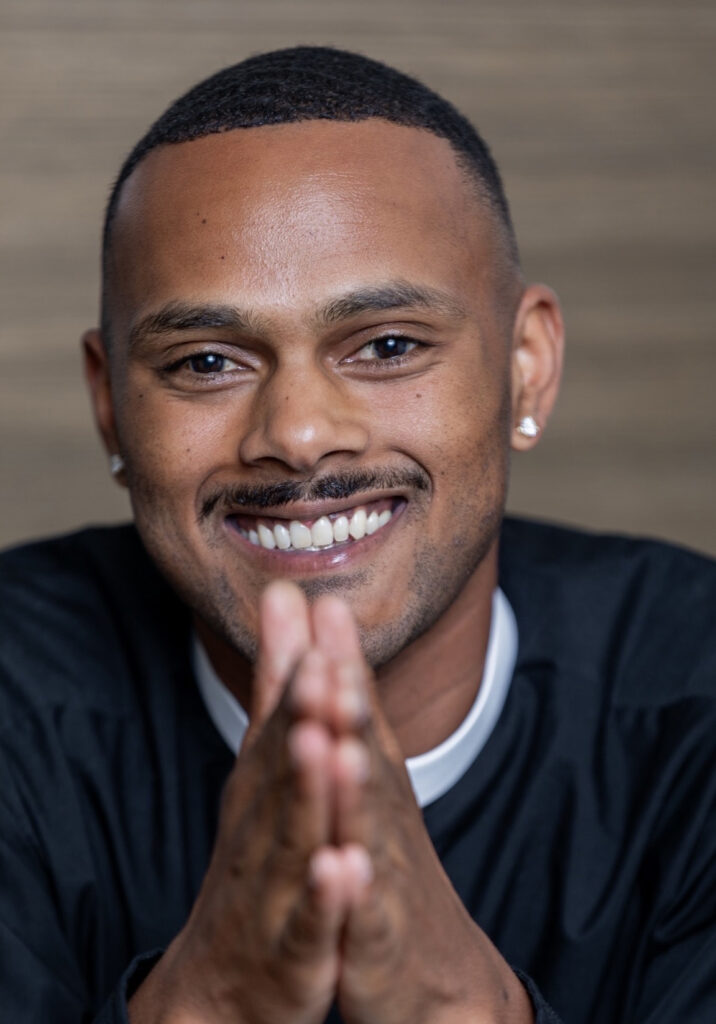
Paul Daniels
The American educational system has a role in teaching critical questioning, he added. “A part of it is how we, at a very young age, teach our children and teach citizens in this country to think, how to read, how to be critical,” he said. “Follow the footnotes,” he added, citing National Literacy Association statistics that “over 54% of American adults read only at a sixth-grade level or below. If what you are reading does not have footnotes, that’s an issue. It is a real thing that requires us to take seriously, what am I reading? Where is it coming from?”
Be aware of media bias, said Guilford, in response to a question about the difficulty of discerning truth in the current political climate amid the overwhelming amount of campaign rhetoric and advertising that often includes self-serving untruths.
“If you google journalistic bias, you’ll see charts of all the different journalistic organizations, from the New York Times to Fox News to MSNBC, and it ranks them on a table as they lean left or lean right,” said Guilford. “I suggest people listen to both sides. Come to it with skepticism and draw conclusions. It is important to be skeptical, and to be skeptical about your own bias – and then the truth is discoverable.”
The problem with lying, the cost of normalizing lying, Sprague said, is “it pulls us further and further away from our own truth and the place that we are connected to what is holy to us, what is meaningful to us, and the place where we’re connected to one another – and that’s crucial in all of this.”
A process of listening, asking questions and really thinking through what we hear others saying is vital, especially when opinions differ, Sprague told the gathering. “We get into these intellectual arguments, but what’s more important is actually being with somebody and helping them sort out what their values are, giving them that sense that I understand how it is you’ve come to believe what you believe, and if I had your experience, I would be believing the same thing.
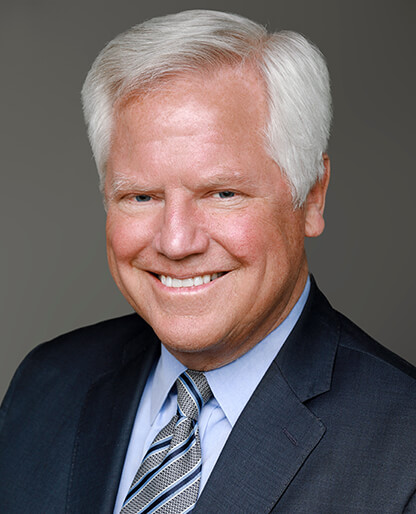
Andrew Guilford
“Sit and listen to people and ask them and be with them as they search for the truth,” she said. “We try to give them a quick answer, we cut them off, and it’s really important that we listen, that we take the next step (to ask) … What does that mean, and what does that mean to you? Be present with them as they struggle with it, to find the truth and also then deal with what are the implications of that to you. And if that is true, how does that impact you?
Grief is involved when belief is misplaced, she added. “None of us want to feel like we’ve been duped. When we lose a truth, there’s a grief attached to that. It’s very important to be with people as they grieve the loss of something they believed in, and to be present with them in that and help them get a plan as to ‘where do I go from here? What’s my next step?’
Diminishing lies can be a way to lessen their impact and to deal the current culture of mis- and disinformation, Daniels said, in response to Leach’s question about the normalization of lies and if it is easier to confront untruths or to ignore them.
“You’ve got to make the thing small by really working to build a coalition of people who are willing to listen, who are willing to do the work and who are willing to be constructively skeptical,” he said.
“In that work of building a coalition, the liar has no audience. But to continuously give the stage to or focus to or power to this idea that we are offended, and this is horrible and you’re lying, is to give the liar what they want most, which is attention,” Daniels continued. “We’ve got to be confident enough in what we’re doing and what we believe, in what we’re saying and where we’re going, to actually sideline them. That isn’t to completely ignore it, but not to give it the kind of spotlight it probably wants most.”
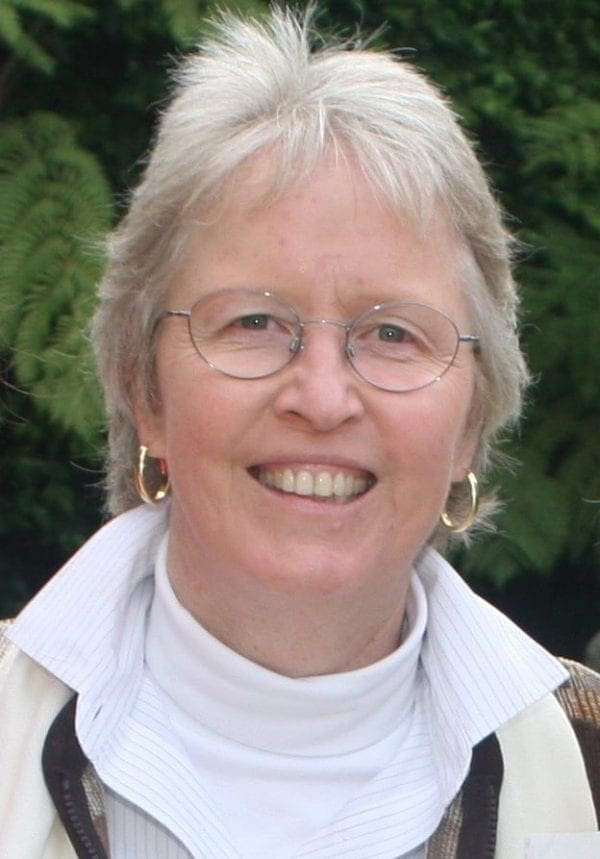
Lo Sprague
Truth became blurred “when news didn’t have to be news; suddenly it could be entertainment,” Sprague said. “We get flooded with lies. In this country, people used to be sued for not telling the truth. We had a mutual agreement, a social agreement, that we were to tell the truth. People always fudged at that, but I don’t think there was a wholesale decision that we don’t value truth anymore. That’s happened, and I think it’s been forced upon us in some way. We have to reset that. We need to find a way to lift up the truth and to value the truth, because otherwise you get craziness.”
Kathy Shapiro, a webinar participant, said she loved hearing that Christianity encourages questioning. “When I heard that, being Jewish, I thought, wow, that sounds very Jewish and it’s not what I would have thought of as traditional Christianity. So, I was really glad to hear that,” she said, adding, “It can be hard, but there’s also an excitement to opening up to a new truth.”
Guilford said he seeks truth via the model of the traditional Anglican three-legged stool—Scripture, tradition and reason, adding: “Gather a lot of information, conflicting ideas and apply your mind and somewhat your heart to come to truth.”
Prayer helps also, Sprague said. “Prayer leads me to the next place to look.”
For Daniels, the search for truth involves “the work of constantly turning over what you think. I find great joy in that exercise.”
